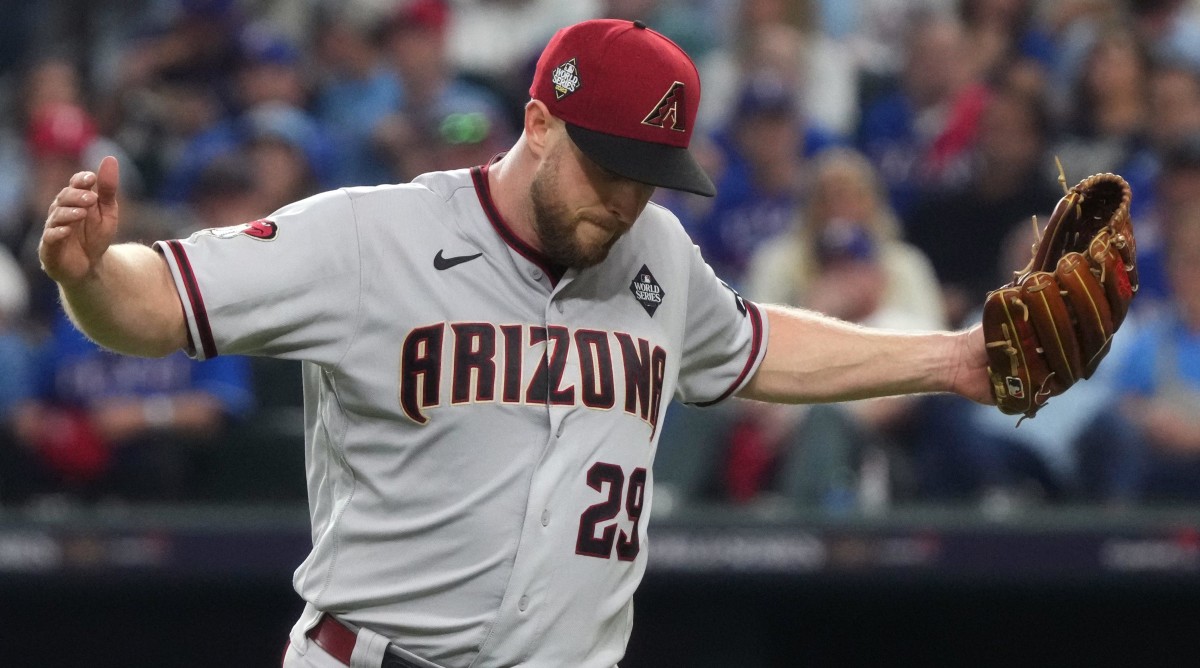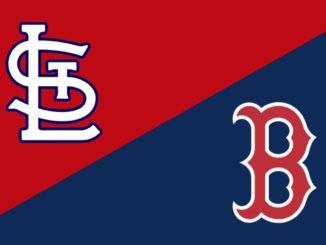
The Boston Red Sox entered last offseason with a clear intention to strengthen the top of their pitching staff, and they made a major move in that direction by acquiring Garrett Crochet. That decision immediately elevated the front of their rotation, giving them a legitimate Cy Young–caliber arm to build around. Now, with another offseason underway, the organization appears poised to continue that mission. Rather than relying on one elite starter to shoulder the load, Boston seems prepared to explore options that would deepen the rotation and minimize the uncertainty that plagued the team in previous years.
At the moment, the club does have Brayan Bello as a promising and productive piece behind Crochet. Bello’s growth over the past year has made him a stabilizing presence, and his continued development could make him a long-term fixture in the rotation. Yet even with Crochet and Bello forming a strong one-two combination, the rest of the starting staff is full of question marks.
This is precisely why so many analysts expect the Red Sox to shop for additional arms over the coming months. According to Tim Kelly of Bleacher Report, one of the more realistic—and financially manageable—moves Boston could consider is the signing of veteran right-hander Merrill Kelly.

Kelly wrote that Boston lines up extremely well as a landing spot for Merrill Kelly, especially if they choose not to retain Lucas Giolito. The Red Sox have made it clear they are seeking reliability and top-tier innings from their rotation, and Kelly fits the bill as someone who has consistently delivered quality performances. Crochet, coming off a Cy Young runner-up campaign, projects to anchor the staff, and Bello likely settles in as the No. 2 option.
But beyond those two, the picture becomes far murkier. Connelly Early, for example, has shown flashes of potential but owns only 19 regular-season innings at the major-league level. He cannot reasonably be counted on as a regular starter yet. Kutter Crawford and Patrick Sandoval are both making their way back from Tommy John surgery, an uncertain and often lengthy recovery process. And Tanner Houck, who underwent Tommy John surgery in August, is almost certain to miss the entire 2026 season. With so much instability and injury risk, the need for a steady veteran presence becomes obvious.
President of baseball operations Craig Breslow hinted earlier in the offseason that if the Red Sox were to add a starter, it would not be a minor or marginal move. Breslow indicated Boston’s goal would be to add someone capable of pitching near the top of a rotation—a frontline type of starter. While Merrill Kelly does not carry the same high-end appeal as names like Ranger Suárez, Dylan Cease, or Michael King, he stands out as a cost-efficient option who brings consistency and durability. He has shown the ability to pitch effectively in big games and offers a stabilizing presence for a staff otherwise dependent on youth and arms returning from injury.

Tim Kelly projected that the Red Sox could land Merrill Kelly with a one-year contract worth roughly $13.5 million. At age 37, Kelly is not a long-term solution, but his experience and recent track record make him appealing as a short-term rotation upgrade. He was traded from the Arizona Diamondbacks to the Texas Rangers during the most recent season, a move reflecting both his value and his ability to contribute to a contender.
Prior to being moved to Texas, he was enjoying an excellent year with the Diamondbacks. In 22 starts with Arizona, Kelly posted a 3.22 ERA, demonstrating once again that he remains a highly effective pitcher deep into his 30s. After the trade, his numbers dipped slightly—he recorded a 4.23 ERA in 10 appearances for the Rangers—but he continued to show the poise and command that have defined his career.
When looking at his full career profile, Kelly’s reliability becomes even more evident. Over seven seasons in Major League Baseball, he has compiled a 3.77 ERA, a mark that reflects steadiness, not volatility. He is not prone to extended slumps, rarely loses command for long stretches, and has proven he can handle innings without breaking down physically. That combination is exactly what a team like the Red Sox needs as they manage workloads for their younger pitchers and navigate the uncertainties of multiple recovering arms.

Another major factor working in Kelly’s favor is his cost. Compared to other prominent free-agent starters or trade-market options, Kelly’s projected contract is modest. The Red Sox, under Breslow’s leadership, have been exploring ways to improve the roster without committing to oversized, lengthy contracts that could limit flexibility down the road. Signing Kelly would leave the organization with enough financial breathing room to strengthen other areas of need—such as the bullpen, outfield depth, or bench offense—while also shoring up the rotation.
In many ways, pursuing Merrill Kelly would represent a strategic middle ground for Boston. On one hand, he is far more dependable than taking a risk on an unproven young starter or rushing back a pitcher still recovering from surgery.
On the other hand, he does not carry the same long-term commitment or luxury-tier price tag that comes with targeting someone like Cease or King. Kelly fits the mold of a stopgap ace-adjacent starter: someone who can give you quality innings, stabilize the staff, and help keep the team competitive while the Red Sox evaluate the long-term structure of their rotation.

It’s also worth noting that Boston’s pursuit of starting pitching is part of a broader organizational effort to recalibrate the team after several years of underperformance. The Red Sox have been caught in the limbo between rebuilding and contending, and their roster has lacked the consistency and durability required to sustain postseason pushes. Adding Crochet was the first major step in signaling that the team intends to compete seriously. Building around him with smart, calculated additions would further that mission.
Even if Merrill Kelly is not the splashiest name on the market, he brings attributes that winning teams rely on: veteran savvy, adaptability, postseason-level composure, and a track record of success against elite competition. He may not have the overpowering arsenal of top-tier aces, but his command, pitch mix, and ability to keep hitters off balance have allowed him to succeed year after year. In fact, his pitching approach could serve as a valuable model for younger Red Sox arms as they continue to mature.

The Red Sox face a pivotal offseason. They must make decisions that determine whether they move closer to contention or continue to hover around mediocrity. Bringing in a reliable, reasonably priced starter like Merrill Kelly would check several important boxes at once. It would protect the rotation from injury-related collapses, give the team a steady arm capable of delivering six competitive innings nearly every time out, and create a buffer that allows Boston to be patient with its recovering pitchers instead of rushing anyone back prematurely.
Ultimately, Merrill Kelly represents an intersection of value, experience, and practicality. His addition would not only improve the starting rotation but also give the front office more flexibility to improve the roster in other areas. For a team navigating a complicated pitching landscape—with one star at the top, one promising young arm behind him, and a long list of uncertainties after that—Kelly could be exactly the kind of stabilizing force the Red Sox need.
More MLB News:
-
Breaking: Mariners on another blockbuster reunion after essential Josh Naylor success
-
Report: Guardians Trade For Veteran Angels Outfielder In 2-Player Blockbuster Proposal
-
Breaking: Giants kill two birds with one stone in trade with the Cardinals
-
Breaking News: White Sox officially exercised another $20 million contract
-
Breaking News: Red Sox Poach $8.6 Million Yankees Star
-
Breaking News: Mets right-hander garnered trade, finalizes $11.7M blockbuster deal



Be the first to comment